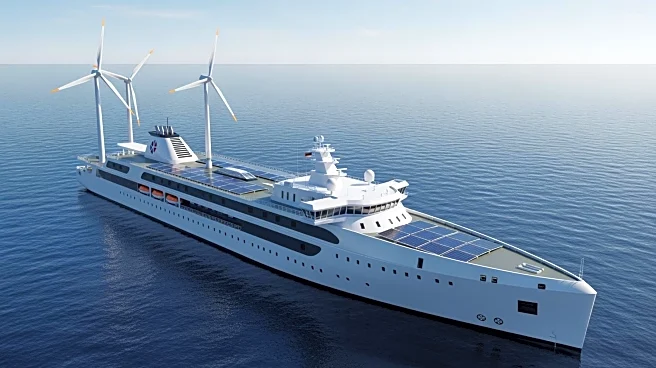What's Happening?
In October 2025, 30 new orders for alternative-fueled vessels were placed, according to DNV’s Alternative Fuels Insight platform. The majority of these orders, 26 in total, are for LNG-fueled vessels, primarily within the container segment. Additionally,
four methanol-fueled vessels were ordered, three of which are tankers. This brings the total number of alternative-fueled vessel orders in 2025 to 222, a slight decrease from the previous year. LNG-fueled vessels continue to dominate the market, accounting for 67% of all orders. The container segment alone represents 65% of these new orders, indicating a strong industry shift towards more sustainable maritime solutions.
Why It's Important?
The increase in orders for alternative-fueled vessels signifies a growing commitment within the maritime industry to reduce environmental impact and comply with stricter emissions regulations. This shift is crucial for the industry's sustainability goals and reflects broader global efforts to transition to cleaner energy sources. The dominance of LNG-fueled vessels suggests a preference for this technology due to its current availability and infrastructure support. However, the interest in methanol and other alternative fuels indicates a diversification of energy sources, which could drive innovation and investment in new technologies. This trend may also influence regulatory policies and encourage further development of bunkering infrastructure.
What's Next?
As the maritime industry continues to embrace alternative fuels, further investments in bunkering infrastructure are expected to support the growing fleet of alternative-fueled vessels. This could lead to increased collaboration between shipping companies, fuel providers, and regulatory bodies to ensure the availability and safety of these new fuels. Additionally, the industry may see advancements in vessel design and technology to optimize the use of alternative fuels. Stakeholders will likely monitor the performance and environmental impact of these vessels closely, potentially influencing future orders and regulatory standards.

















